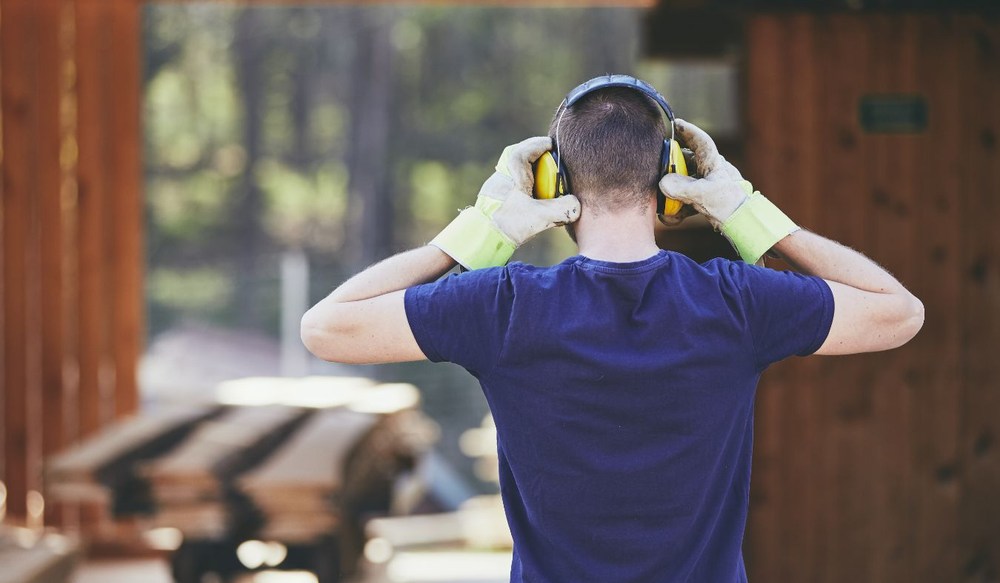Managing Hearing Aid Performance in Heated Indoor Spaces
When the weather turns colder and indoor heating becomes part of daily
Now Offering Earigator Ear Wax Removal At Magnolia & Montgomery locations! Learn More →

By: admin | August 21, 2025
As you get older, maintaining your hearing becomes increasingly important for staying active and engaged in daily life. Good hearing helps you follow conversations with family and friends, participate in social gatherings and handle everyday tasks like talking on the phone or listening to important announcements. When hearing starts to decline, it can affect your ability to communicate effectively, which may lead to frustration, misunderstandings or even avoiding situations where clear communication is important. Many people don’t realize how much their hearing affects their overall enjoyment and participation in daily interactions.
Taking care of your hearing health as you age isn’t just about addressing problems after they occur. Regular hearing checkups and prompt attention to any changes can help you maintain better communication abilities and stay more involved in the activities and relationships that matter most to you. The earlier you address hearing concerns, the more options you typically have for managing them effectively and maintaining your quality of life as you age.
The auditory system is made up of the outer ear, middle ear, inner ear and the pathways that connect to the brain. The outer ear gathers sound and funnels it down the ear canal to the eardrum. When sound waves hit the eardrum, it vibrates. These vibrations move through the middle ear, where three small bones pass them along and amplify the sound. From there, the vibrations reach the inner ear’s cochlea. Inside the cochlea, thousands of microscopic hair cells respond to different sound frequencies and turn the movement into electrical signals. These signals travel through the auditory nerve to the brain, which organizes and interprets them so you can understand what you are hearing.
As we age, several parts of this system begin to change. The hair cells inside the cochlea can wear down or die, and they do not regenerate. The auditory nerve may also lose some efficiency in transmitting signals, which can make sounds seem less sharp or harder to distinguish. In the middle ear, the bones and other structures can become stiffer, reducing their ability to transmit sound effectively. Even when the ears are still healthy enough to pick up sound, the brain’s ability to process and separate competing sounds can slow, which is one reason background noise becomes more of a challenge.
These age-related changes tend to happen gradually, which is why many people do not notice them at first. You might adapt by turning up the volume on devices or asking others to repeat themselves without realizing your hearing has shifted. Over time, however, the combined effects of these changes can limit how well you detect certain pitches, follow rapid speech or pick out specific voices in busy environments.
Spotting changes in your hearing early can make managing them much easier. When hearing loss is identified soon, solutions can be found that help you stay engaged and active. Addressing hearing changes before they progress too far often means you can maintain more of your natural hearing ability and adjust more comfortably to any recommended devices or treatments. This proactive approach also gives you more options, since some interventions work best when started before significant hearing damage occurs.
Early detection also helps prevent some of the difficulties that can arise when hearing loss goes unaddressed, like trouble with memory or feeling left out during conversations. When hearing becomes more challenging, the brain has to work harder to fill in the missing pieces, which can strain mental resources and lead to fatigue. Over time, this extra effort can affect how well you process and remember information. Socially, it may lead to withdrawing from group activities or avoiding certain settings altogether
Age-related hearing loss (presbycusis) develops gradually over many years and affects both ears in a similar way. It is different from hearing loss caused by injury or illness because it is not the result of a single event. Instead, it comes from a combination of natural changes to the inner ear, auditory nerve and brain over time.
One of the most common symptoms of age-related hearing loss is difficulty hearing higher-pitched sounds, like children’s voices or certain consonants in speech. This can make words seem muffled or incomplete, even when the volume seems loud enough. Another difference is how it affects listening in noisy places. Because presbycusis involves changes in both the ear and the brain’s ability to process sound, it can be especially hard to separate one voice from background noise.
Unlike sudden or medically induced hearing loss, age-related changes are usually permanent and cannot be reversed. However, they can be managed effectively with the right support, like hearing aids or assistive listening devices.
Some signs of hearing loss in later life can be easy to overlook. You might notice that you ask others to repeat themselves more often or have difficulty following group conversations, especially in noisy places. Family members may also mention that the TV volume is much louder than before. You might catch yourself avoiding certain social situations because they have become too tiring or confusing to follow.
Feeling frustrated or left out during conversations is common, and over time this can lead to withdrawing from activities you once enjoyed. These changes can happen so gradually that you may not realize how much you are missing until it begins to affect your daily life.
When hearing loss is not addressed, it can change how you interact with the world. You may find it harder to join conversations, making social events less enjoyable and sometimes leading to feelings of loneliness. Missing important sounds like alarms or doorbells can also affect your safety and confidence in daily routines.
Some common effects include:
Untreated hearing loss can have a significant impact on brain health. When the brain receives less sound input over time, it struggles to process speech and other auditory information. This lack of stimulation can contribute to cognitive decline, making memory, attention and thinking skills more difficult. While hearing loss itself is not a direct cause of dementia, it adds strain on the brain by forcing it to work harder to understand incomplete sounds. This ongoing effort can accelerate cognitive challenges, highlighting the importance of addressing hearing loss early.
The effects of untreated hearing loss extend beyond the brain to emotional health. Difficulty hearing can lead to feelings of frustration, stress and even isolation. Struggling to follow conversations or missing important sounds can wear down daily mood and resilience. Over time, this can contribute to anxiety and depression as the person feels cut off or overwhelmed by communication challenges. Mental well-being often declines quietly but steadily alongside untreated hearing loss.
Socialization suffers when hearing loss goes unaddressed. The emotional strain and increased effort to communicate can lead people to withdraw from social situations, avoid group activities or limit interactions with family and friends. This isolation reduces opportunities for meaningful connection and can deepen feelings of loneliness. As relationships become harder to maintain, the overall quality of life often decreases, creating a cycle that’s tough to break without support.
Safety is a practical concern that should not be overlooked. Not being able to hear warning sounds like alarms, traffic or calls for help puts individuals at greater risk in everyday situations. Hearing loss can affect balance and spatial awareness, increasing the chance of accidents and falls. Recognizing these risks underscores the value of managing hearing loss to protect both independence and well-being in daily life.
Hearing loss can sometimes be prevented, but it depends on the type and cause. One common form of hearing loss, presbycusis, develops gradually as part of the natural aging process. While presbycusis itself cannot be fully prevented, there are steps you can take to protect your hearing and reduce the risk of additional damage.
Avoiding prolonged exposure to loud noises is one of the most effective ways to prevent hearing loss. Everyday sounds, like loud music, machinery or frequent use of headphones at high volume, can contribute to hearing damage over time. Using ear protection in noisy environments and keeping volume levels moderate helps reduce this risk. Maintaining good overall health through proper nutrition and managing conditions like high blood pressure and diabetes also supports hearing health.
Regular hearing check-ups allow early detection of hearing changes before they become more serious. Although presbycusis cannot be stopped, catching hearing loss early makes a difference in managing it effectively. Combining prevention efforts with timely care helps protect hearing and maintain better communication and quality of life as you age.
Choosing the right hearing protection depends on your lifestyle and the types of noise you encounter. For everyday situations like mowing the lawn, attending concerts or working in noisy environments, options like earplugs or earmuffs can help reduce sound levels to safer ranges. Earplugs come in disposable foam versions, reusable silicone types or custom-molded options that fit your ears precisely for better comfort and effectiveness. Earmuffs provide a more noticeable physical barrier and can be easier to put on and take off quickly.
When considering hearing protection, it’s important to think about comfort, convenience and how much noise reduction you need. If you use protection regularly, investing in higher-quality or custom-fit products can make a big difference in how often you wear them. Some hearing protectors are designed to reduce harmful noise but still allow you to hear conversations and important sounds clearly, which can be helpful in work or social settings.
Regular hearing checkups become increasingly important as you get older because hearing changes often happen gradually and can be hard to notice at first. Hearing evaluations help identify any shifts that might be occurring and provide a clear understanding of your hearing health. Many people feel uncertain about having their hearing checked, but it is a simple and effective way to stay on top of your overall well-being. Early detection through regular visits helps you stay engaged in conversations and enjoy daily activities without unnecessary frustration.
If you notice turning up the volume on the TV or having trouble following conversations, it may be time to see a hearing instrument specialist. Even subtle changes in hearing can benefit from early attention. A specialist can assess your needs and recommend suitable options, including hearing aids, which can improve hearing clarity and quality of life. For those already using hearing devices, regular visits ensure they continue working properly and allow for necessary adjustments. Ongoing care also helps identify other ear health issues, such as wax buildup, that might affect hearing and device performance.
Hearing plays a key part in staying connected and enjoying everyday moments as you get older. When you keep an eye on your hearing health and act on any changes early, you give yourself a better chance to maintain clear communication and avoid the frustration that can come with hearing loss. Staying proactive means you can keep taking part in conversations, social events and daily activities without feeling held back by hearing challenges.
If you notice changes in your hearing or want to make sure everything is on track, don’t hesitate to reach out for support. Contact Clark Hearing Inc at one of our Texas hearing clinics in Magnolia: (281) 789-4874, Tomball: (281) 351-1955 or Montgomery and Shenandoah: (281) 363-2847. Taking simple steps now can help you protect your hearing and enjoy a fuller, more active life for years to come.

When the weather turns colder and indoor heating becomes part of daily
By: admin | January 19, 2026

Fall brings cooler weather and plenty of outdoor activities, but it also
By: admin | November 18, 2025

As you get older, maintaining your hearing becomes increasingly important
By: admin | August 21, 2025
